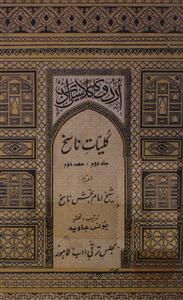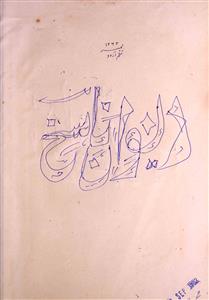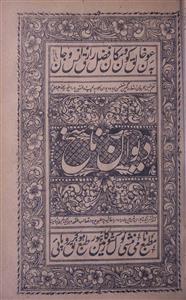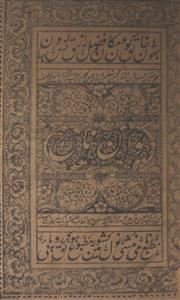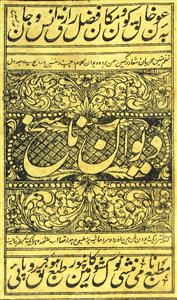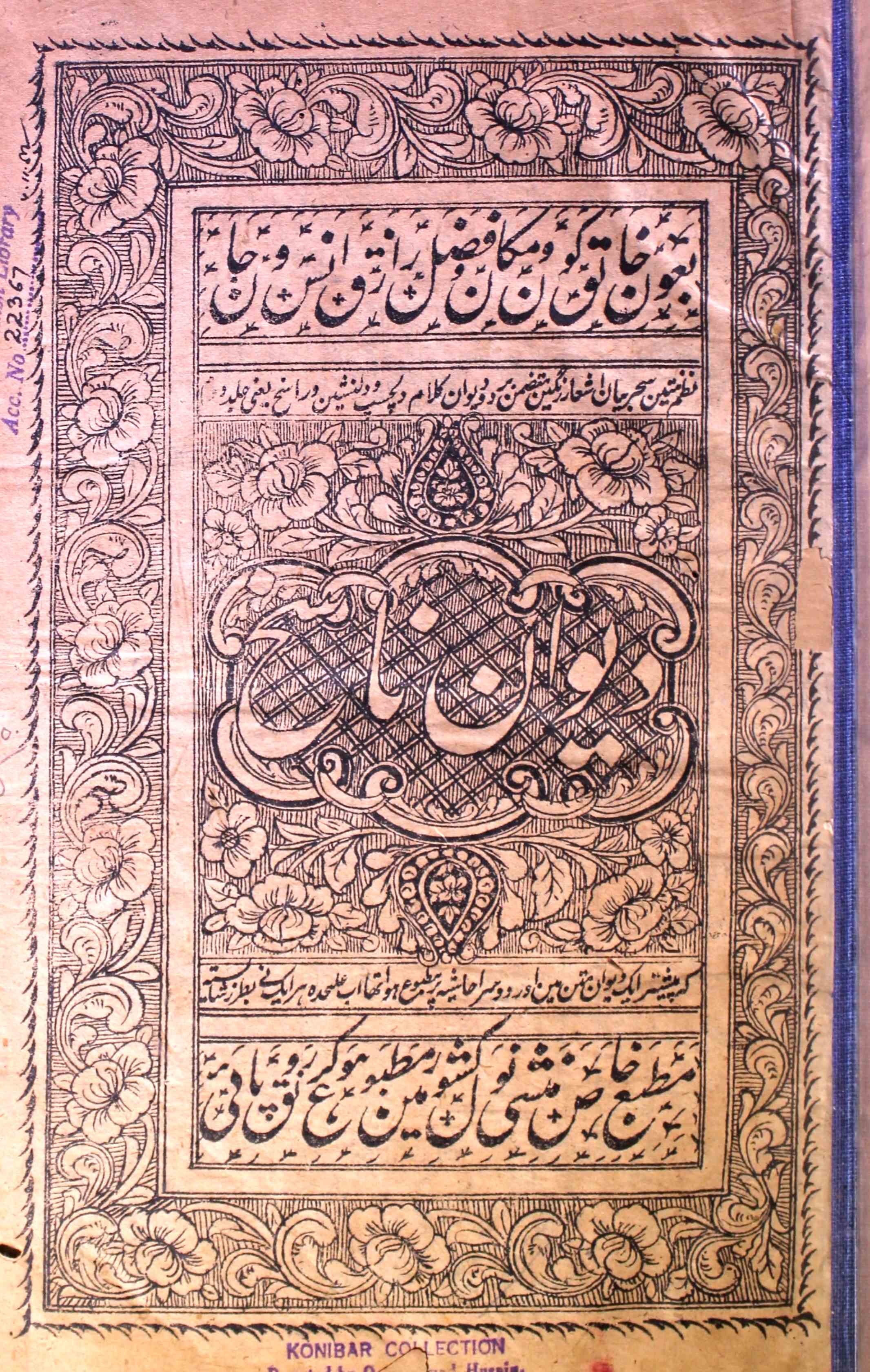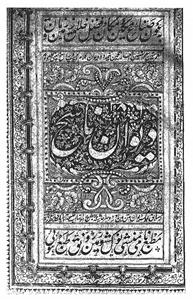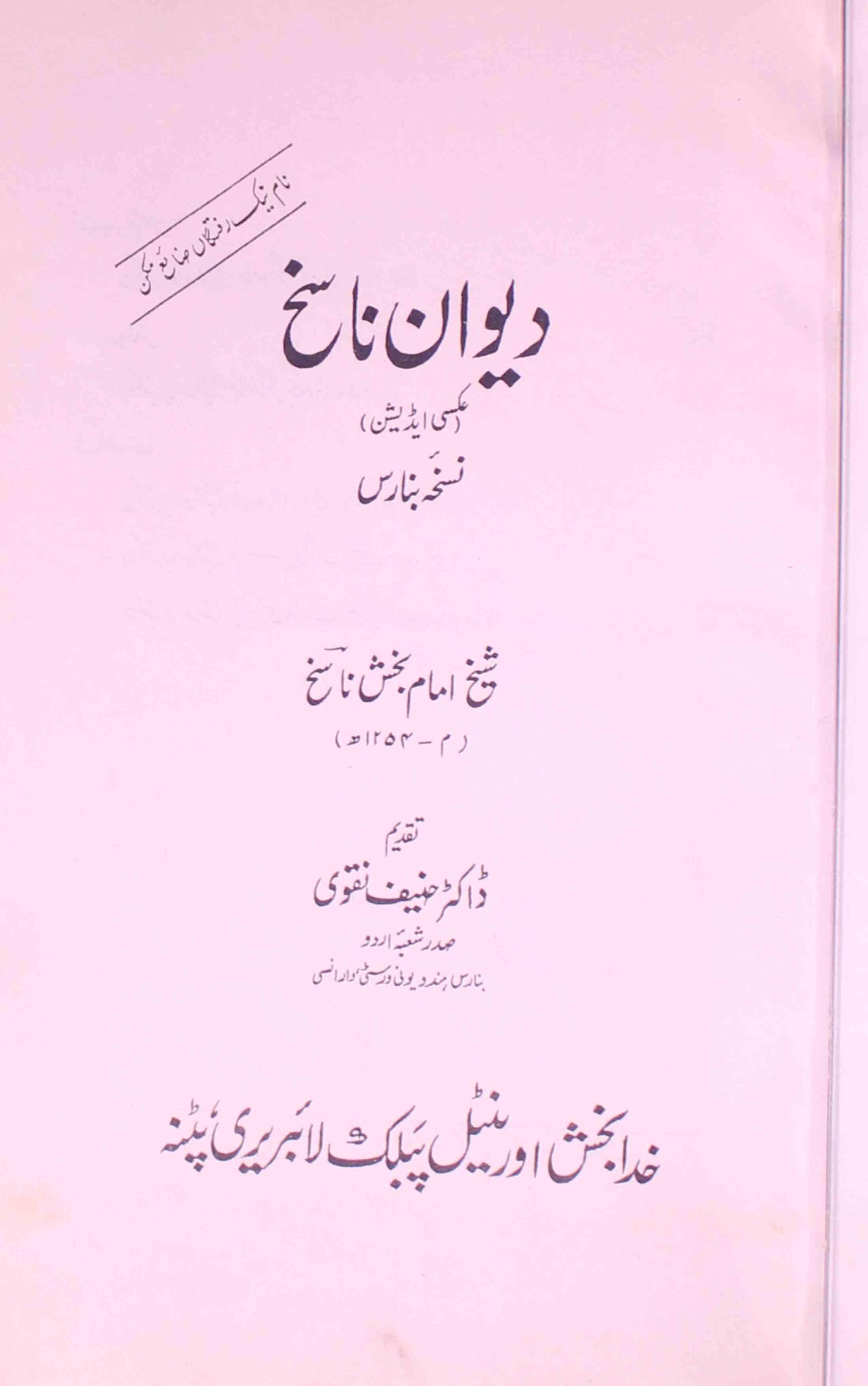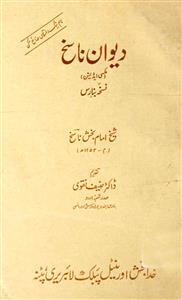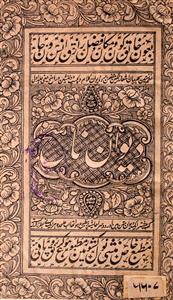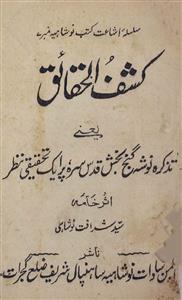 For any query/comment related to this ebook, please contact us at haidar.ali@rekhta.org
For any query/comment related to this ebook, please contact us at haidar.ali@rekhta.org
About The Book
امام بخش ناسخ صاحب دیوان شاعر ہیں۔ان کی شاعری میں لفظوں کی صحت اور اصول شاعری کا کافی خیال کیا گیا ہے۔انھوں نے زیادہ تر غزلیں کہیں ہیں ۔اس کے علاوہ انھوں نے رباعیاں ،قطعات ، تاریخیں اور مثنویاں بھی لکھیں ہیں۔انھوں نے مشکل زمینوں ،انمول قوافی اور طویل ردیفوں میں صرف شاعری ہی نہیں کی بلکہ استادی بھی تسلیم کرائی۔انھوں نے زبان و بیان کے قوانین کی خودپیروی کی اور اپنے شاگردوں سے ان کی پابندی بھی کرائی۔زیر نظر کتاب ناسخ کا کلیات ہے۔اس کلیات کو دیگر قدیم نسخوں کو سامنے رکھ کر مثلا نسخہ مصطفی 1267ء ،مطبع نولکشور،اور محمدی کو سامنے رکھ کر ترتیب دیا گیا ہے۔لہذا متن میں نسخہ نول کشور 1872 کو رکھا گیا ہے اور نسخہ مصطفی(اول دوم) اور نسخہ مطبع محمدی کے اختلافات کو حاشیے میں درج کیا گیا ہے۔ اس کلیات کو مجلس ترقی ادب لاہور نے دو جلدوں شائع کیا ہے۔ پہلی جلد میں صرف غزلیات ہیں جبکہ دوسری جلد میں ردیف یا کی غزلوں کا علاوہ ناسخ کا دوسرا کلام موجود ہے۔ اس کلیات کو یونس جاوید نے مرتب کیا ہے۔
About The Author
Sheikh Imam Bakhsh Nasikh (1772-1838) was born in Faizabad and later travelled to Lucknow. He had his education in Arabic and Persian. On account of his keen poetic sensibility and sound training in the skills of language, he had his disciples in the nobility. A man of integrity, he did not, however, vie for reaping any benefits from them. In fact, he became a victim of serious political bickering and left Lucknow for Allahabad.
Nasikh earned his reputation not as a great poet but as a great craftsman of poetry. He deliberated upon language, syntax, and the poetic devices which he employed to turn a composition into a work of art. Literary circles in Delhi came to hear of his distinct merit, and considered him worth emulating. He played a significant role in secularising Urdu while respecting the classical norms of language and style. In doing this, he expanded the frontiers of vocabulary, adopted a non-puritanical approach, and modernised it. His individuality lies in imparting an Indo-Persian nature to his verse. This also explains his kinship with poets like Sauda, Mir and Dard, who also deliberated upon the nature and function of language and the modes of poetic expression. Not a poet of great metaphysical depth, Nasikh’s merit lies in his technical virtuosity, linguistic finesse, and his ability to control and modulate the intricate line and the unusual rhythm.
 For any query/comment related to this ebook, please contact us at haidar.ali@rekhta.org
For any query/comment related to this ebook, please contact us at haidar.ali@rekhta.org
